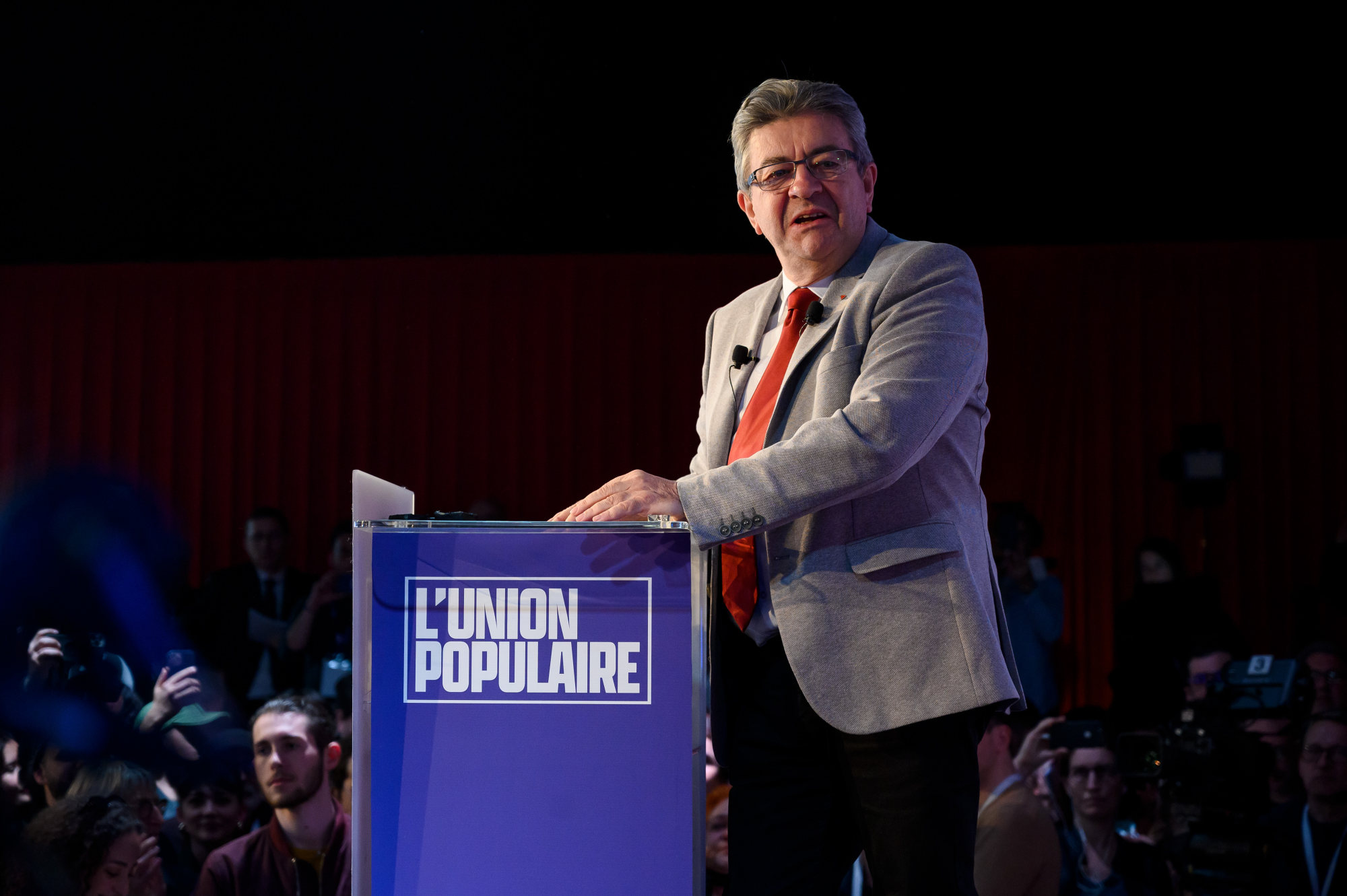
France’s Emmanuel Macron steps up campaign against Marine Le Pen in far-right bastion
- Macron came out on top in Sunday’s first round of voting with 27.85 per cent, with Le Pen second at 23.15 per cent
- Macron is expected to target Le Pen’s past admiration for Russian leader Vladimir Putin, an explosive issue during the Russian invasion of Ukraine
Centrist President Emmanuel Macron headed on Monday to a blue-collar stronghold of his far-right rival Marine Le Pen, saying her economic promises were a fantasy, in a bid to convince sceptical voters there and beyond to give him a second mandate.
Macron is slightly ahead in polls for the presidential election’s runoff on April 24, but he faces a tough challenge from Le Pen, who has tapped into anger over the cost of living and a perception he is disconnected from everyday hardships.
Macron came out on top in Sunday’s first round of voting with 27.85 per cent, with Le Pen second at 23.15 per cent. As the top two finishers, they advance to a second round on April 24.
“I’m trying to make clear my programme is fair and socially-minded,” Macron said on a walkabout in Denain, one of the country’s poorest towns in its former industrial heartland.

In hours of sometimes heated exchanges, locals called him out on everything from his plans to push back the retirement age to the fact that he said at the height of the Omicron phase of the Covid-19 pandemic that he wanted to “piss off” anti-vaxxers.
“I said that lovingly,” he told a bewildered local about the much-commented-upon “piss-off” remark.
“It’s all fake ... He’s coming to talk to us now because he’s scared of losing to Marine Le Pen,” said 36-year-old Stephanie Berta, an unemployed mother of six, outside the town hall of Denain.
Berta voted Le Pen in the election’s first round and will do the same on the 24th. “Of course she can’t fix everything, but maybe a woman in power will be able to do something,” she said.
Why this week’s French elections matter to the wider world
But beyond Denain, where Le Pen on Sunday won 42 per cent of votes in the town and the hard-left’s Jean-Luc Melenchon came second, Macron was telling voters across France he had heard their concerns and wanted to create wealth so more could be redistributed.
He said Le Pen, who has successfully focused her campaign on the cost-of-living issues troubling millions, would not be able to finance her populist economic agenda and that she was lying to voters.
In turn, he said he was ready to adapt his platform and improve it, in particular to better protect the environment.
Macron is expected to also target Le Pen’s past admiration for Russian leader Vladimir Putin, an explosive issue during the Russian invasion of Ukraine.

Part of the battle will be to mobilise the 26 percent of registered voters who abstained in the first round, a sharp increase from the first round of five years ago.
A Le Pen win would send shockwaves across Europe and beyond, and deliver a similar jolt to the establishment as Britain’s Brexit vote to leave the European Union or Donald Trump’s 2017 entry into the White House.
Interior ministry results showed that, on Sunday, Macron won 27.84 per cent of votes, while Le Pen secured 23.15 per cent and hard-left veteran Jean-Luc Melenchon 21.95 per cent.
Investors appeared somewhat relieved, and France’s CAC 40 outperformed other European peers.
[A Le Pen win] would not only be a break away from the core values of the EU, it would totally change its course
Melenchon urged his supporters not to give Le Pen a single vote but did not endorse Macron. How left-wing voters cast their ballots in the runoff will be crucial to determining the winner.
European neighbours are closely watching events in France, which together with Germany has driven Europe’s post-war integration.
The possibility of a Le Pen win was a worrying prospect for the EU and needed to be prevented by the French people, Luxembourg’s Foreign Minister Jean Asselborn said.
“It would not only be a break away from the core values of the EU, it would totally change its course,” he said.

Making her third run for president, Le Pen on Sunday said voters faced a choice between two opposite visions of France: “one of division, injustice and disorder imposed by Emmanuel Macron for the benefit of a few, the other a rallying together of French people around social justice and protection”.
Le Pen, who has left the core of her far-right, anti-immigration programme unchanged, has focused her campaign on social policies including cutting the retirement age to 60 for those who start work before 20, scrapping income tax for the under-30s and reducing VAT on energy to 5.5 per cent from 20 per cent. She says her numbers add up.
Sunday’s first round dealt yet another hammer blow to the traditional parties of the centre-left and centre-right, which governed France for decades.
The Socialist Party’s Anne Hidalgo picked up just 1.8 per cent of votes. The conservatives’ Valerie Pecresse, seen earlier in the campaign as a serious threat to Macron, won just 4.8 per cent of the vote, below the threshold needed to be reimbursed for her campaign costs by the state.
Pecresse appealed at an emergency meeting for urgent donations to save her Les Republicains party. “What is at the stake is the very survival of Les Republicains and beyond, the very survival of the Right,” she said.
Additional reporting by AFP

.png?itok=arIb17P0)